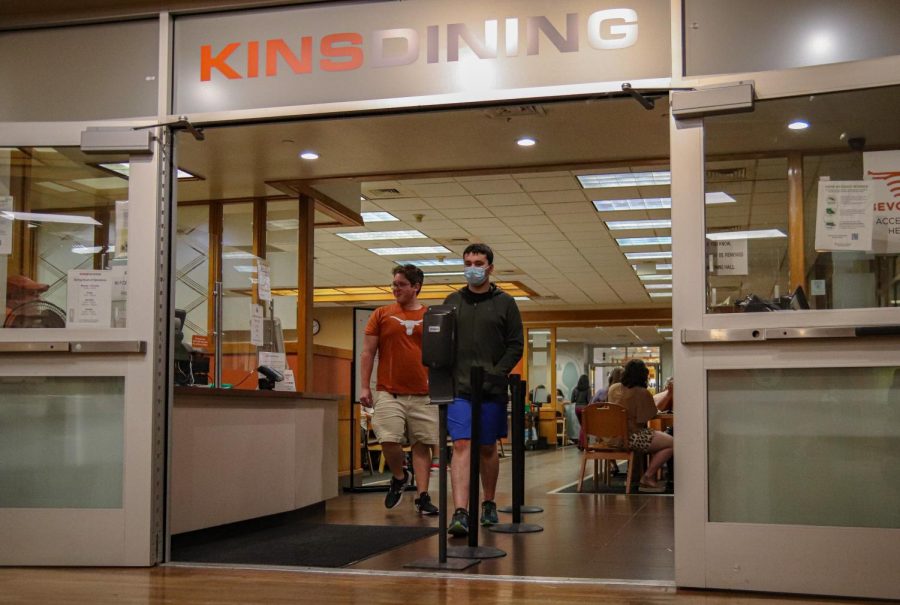Dining halls adopt more rigorous ID checks after Feb. increase in ID confiscations
April 3, 2022
Editor’s Note: This article first appeared in the March 29, 2022 flipbook.
University dining halls and stores have implemented a new policy to check student IDs due to an influx in students using each other’s IDs to access dining halls and make purchases.
In February, dining hall cashiers confiscated more IDs due to improper use than usual, said Josue Rodriguez, assistant director of marketing and communications for University Housing and Dining. As a result of this spike, dining halls now require cashiers to visually check each ID to ensure it matches the individual.
“Checking for improper ID use has always been part of the cashier’s duties,” Rodriguez said in an email. “(But) since we had a spike in February, we placed more emphasis on checking the IDs.”
When cashiers notice an individual using an ID that doesn’t belong to them , they log the incident and confiscate the ID. The case is then sent to the office of student conduct and academic integrity. Rodriguez said one week in February, cashiers confiscated eight IDs from Jester dining locations. On an average week, cashiers confiscate a total of four IDs, he said.
Students who live on campus have an unlimited meal plan. Rodriguez said since the plan is non-transferable, sharing an ID with other students is against the rules in the residence hall manual.
Trevor Liu, an electrical engineering and psychology senior, said it is understandable that the University wants to prevent students from taking advantage of others’ meal plans.
“It makes sense that they’re trying to make sure you can’t leech off of somebody who has unlimited swipes,” Liu said. “Last year I knew a lot of people who would borrow somebody’s ID from the dorms and use (it) to swipe in.”
Liu said while he has noticed the policy, it does not bother him.
“I think I come in enough that the people that work up there are familiar with my face,” Liu said. “I have a commuter plan, so it doesn’t affect me too much.”
Rodriguez said they plan to keep the new policy in place to deter improper ID use, but if students want to bring a guest into the dining hall, they can use their dine-in dollars to swipe a guest in instead of giving them their ID.
Biomedical engineering freshman Samir Huq said he agrees with the new ID policy.
“If you paid for (the meal plan) you (are entitled) what you paid for, but if you didn’t pay for it, you shouldn’t use it,” Huq said. “It comes down to being honest.”
In addition to people sharing IDs, government freshman Oscar Magaña said the policy is a good precaution because someone could steal a misplaced ID and use it to access the dining hall for free.
“If you allow people to give (their IDs) to their friends, you would never know if an ID was stolen,” Magaña said. “Because you can always use the excuse that ‘Oh, my friend lent it to me.’”











